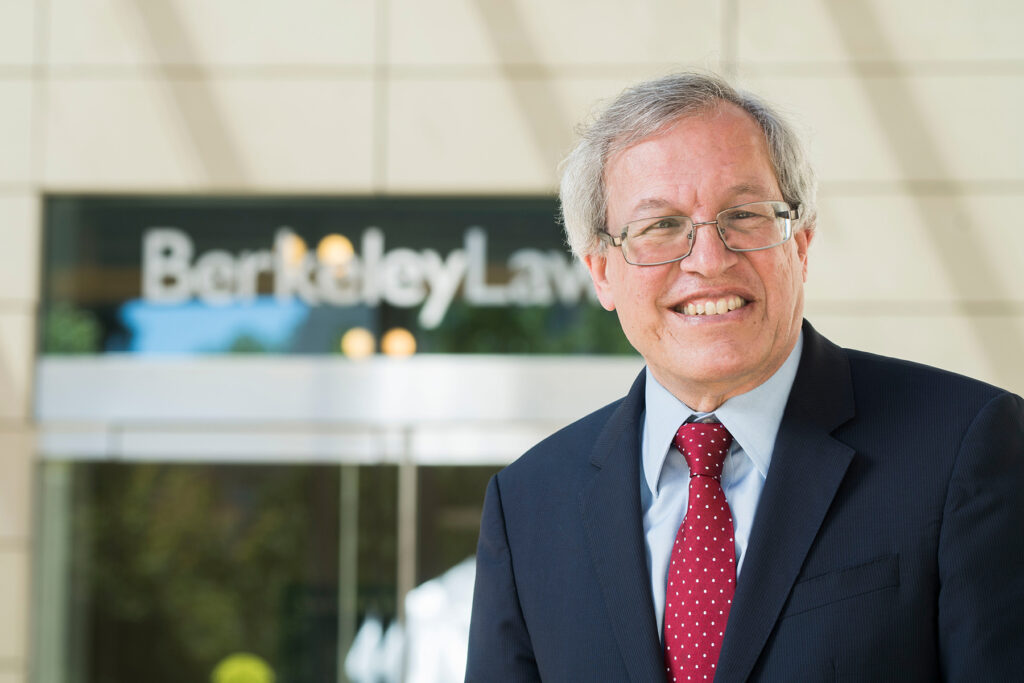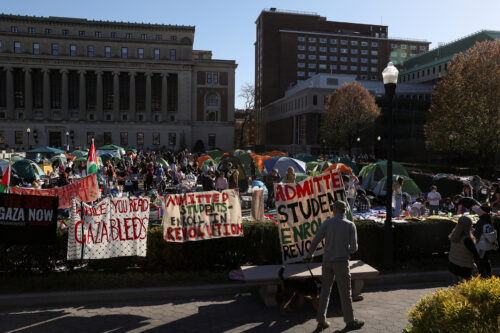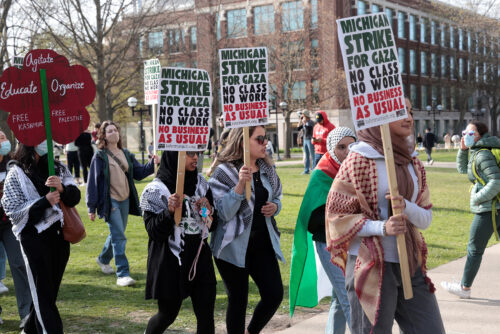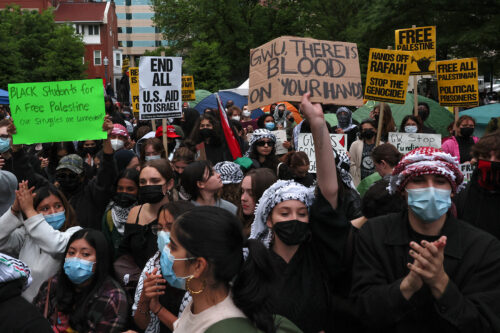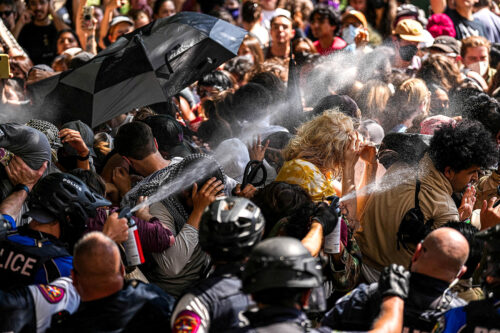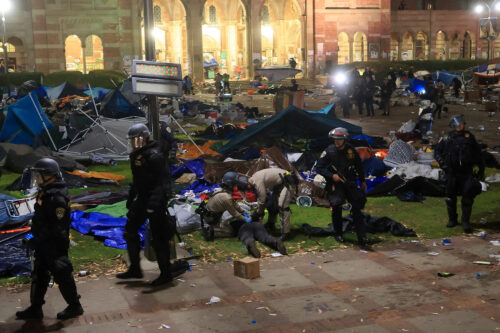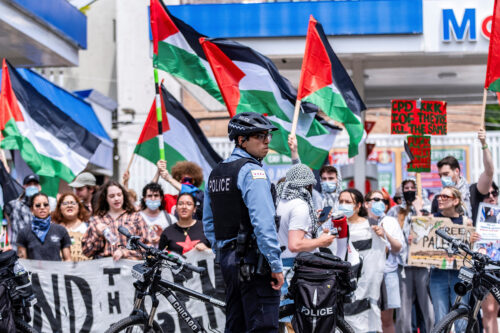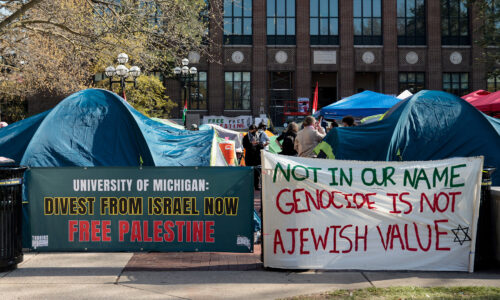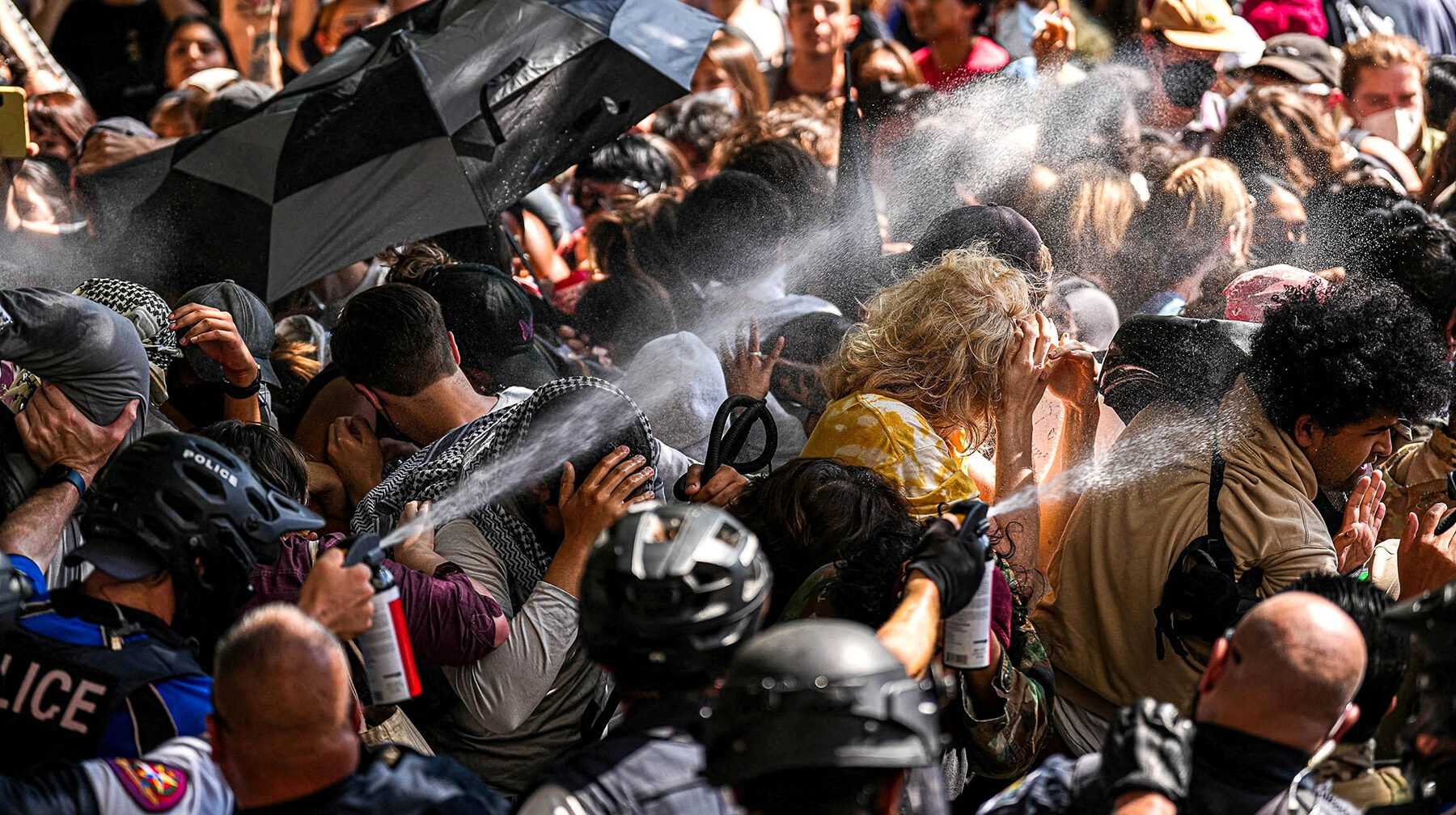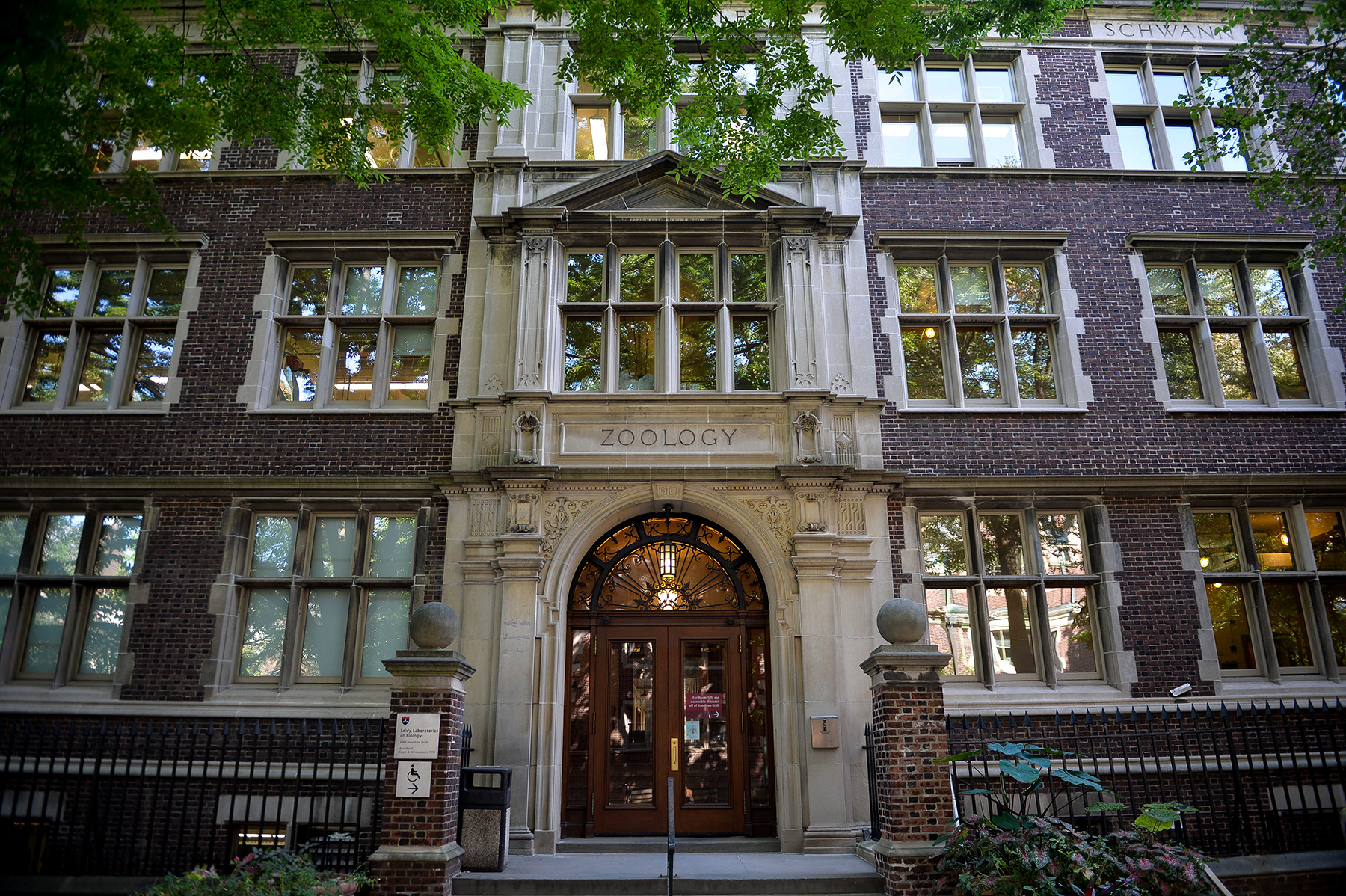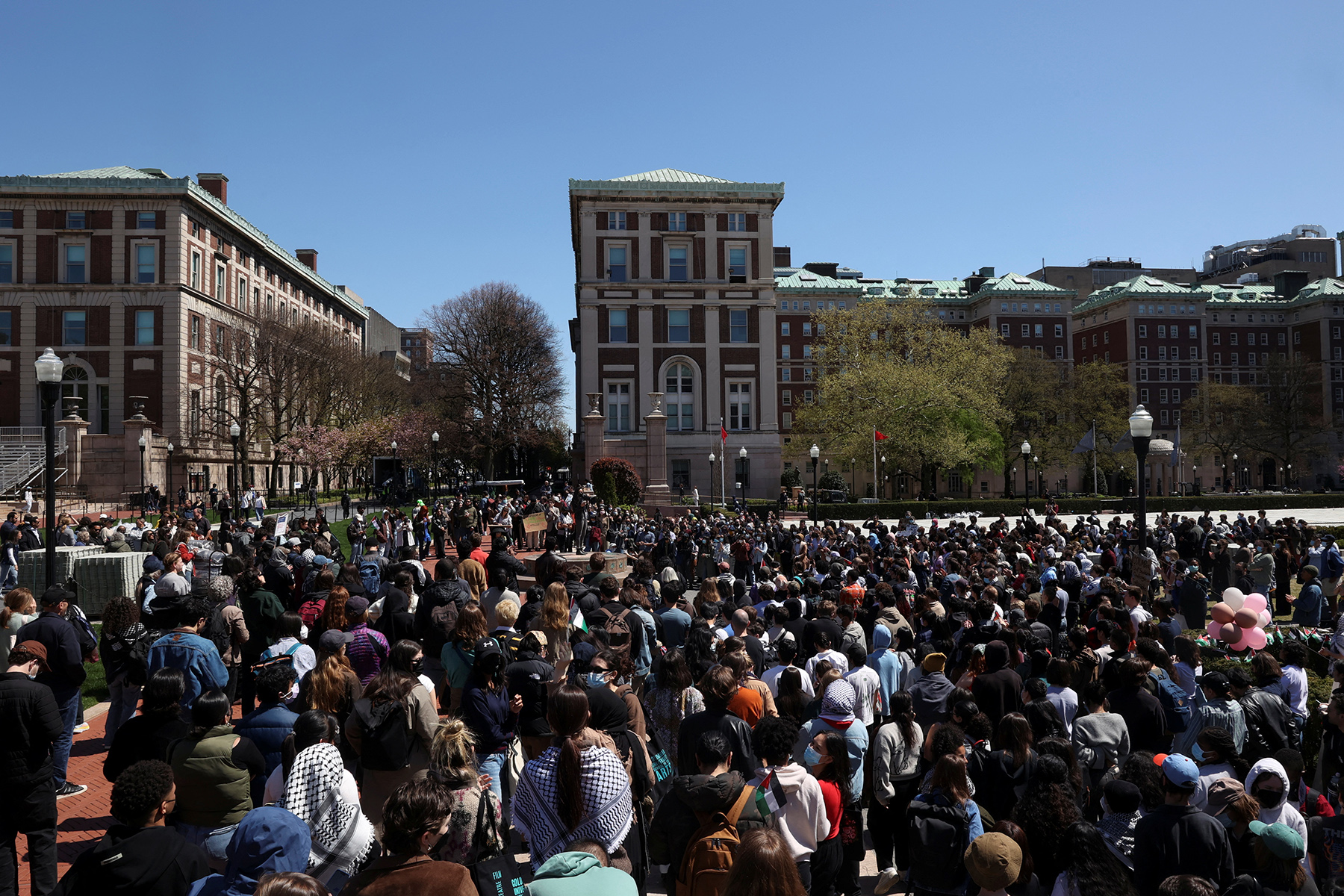Erwin Chemerinsky, longtime constitutional scholar and dean of the University of California, Berkeley School of Law, is an ardent defender of free speech. He co-published “Free Speech on Campus” in 2017, which discussed the importance of freedom of expression within a diverse student population; appeared as a guest speaker on several campuses to discuss free speech, hate speech and censorship; and has written for dozens of publications exploring the First Amendment.
But earlier this year, Chemerinsky, who is Jewish, found himself the target of protests, as pro-Palestinian student activists disrupted an event at his home in Oakland. Videos of the protest went viral, making national headlines. But despite some personal attacks, Chemerinsky remains steadfast in defending the First Amendment.
Since Hamas’ attack on Israel on Oct. 7, colleges and universities nationwide have been embroiled in conflict, with the demonstrations from pro-Palestininan and pro-Israeli groups bringing tensions on campus to new heights. More than 3,500 people have been arrested on college and university campuses since April 18, when Columbia University students set up the first encampment in the country, kickstarting a national movement.
UC Berkeley was home to one of the largest encampments in the country. At least 12 students were arrested on the campus in mid-May after police raided a building occupied by protesters. The encampment was dismantled by students on May 14 following negotiations with the university.
In an interview with First Amendment Watch, Chemerinsky explained why the protest at his home was not protected expression but other, personal, even anti-Semitic attacks against him were protected under the First Amendment.
Editor’s note: This interview has been edited and condensed for length and clarity.
FAW: The protest at your home in early April sparked nationwide coverage and conversations about students’ understanding of the First Amendment right to protest and its limits. In terms of the protest at your home, these were law students who would be expected to understand basic First Amendment principles. So were there other factors at play here?
EC: To be clear, there’s no First Amendment right to protest at our home. Even if this event had been at the law school, there’s no First Amendment right to disrupt that event. So if we were holding a dinner in the law school, which we’ve done with Supreme Court justices, students couldn’t come in and disrupt that dinner and protest. They don’t get more First Amendment rights because it’s in our backyard. It’s our house, it’s private property. Under California law, once we asked them to leave, they were trespassers, and there’s certainly no First Amendment right to do what they did. I don’t know that it was a lack of understanding of the First Amendment that led them to do what they did. They believed they had a righteous cause, and they were going to disrupt the dinner in our backyard. I think we could do a much better job of educating students at all levels with regard to the First Amendment. But I’m not sure that this was about a lack of understanding of the First Amendment. I think this was their desire to disrupt the dinner.
FAW: Students at Stanford Law School shouted down a federal appeals court judge who appeared at a school Federalist Society event on campus in March 2023. Even beyond understanding the heckler’s veto, it is central to a lawyer’s job to engage respectfully with people who have a very different viewpoint. Why is this happening? Is legal education even at the nation’s elite institutions failing to convey some basic values of civil engagement? If so, what can be done about it?
EC: I think it has to be made clear to students that there’s no First Amendment right to use speech to silence others. There’s no First Amendment right to disrupt activities. I send a message about free speech policy to the entire law school every year, and I emphasize that there’s a right to express all ideas and views, but there’s never a right to use speech to silence others, to disrupt activities. I’ve heard students say that, “Well, you have the right if you’re speaking to disrupt others,” or I’ve heard people say there was a First Amendment right to protest in our backyard. Of course, that’s not right. So I think in part, we need to do a better job of educating students in high school, college, and law school. But I also think, in part, it’s not a lack of knowledge of the First Amendment, it’s a desire on their part to engage in protest, even if it’s not protected by the First Amendment.
